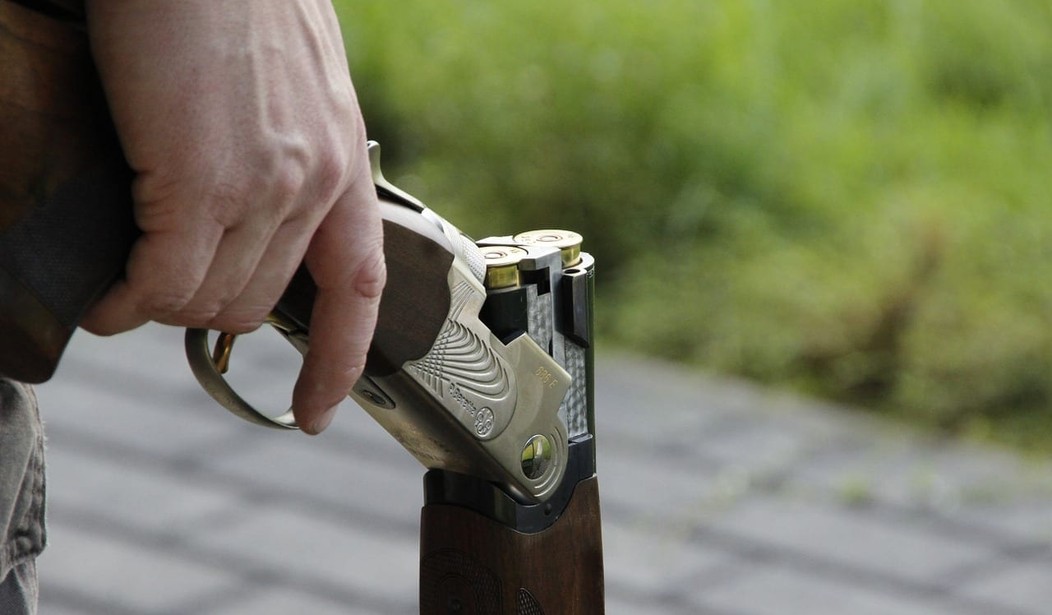Should someone who's been adjudicated as mentally ill be allowed to access their Second Amendment rights after they've been released from in-patient care? A West Virginia man charged with possessing a shotgun after four involuntary commitments between 2016 and 2019 argues that federal law prohibiting him from keeping and bearing arms violates the Constitution, but on Tuesday a three-judge panel on the Fourth Circuit Court of Appeals disagreed; upholding his conviction and the federal statute he was charged with violating.
James Gould and his public defender Lex Coleman have launched a facial challenge to Section 922(g)(4), arguing that the statute barring those who've been adjudicated as mentally defective from possessing or purchasing a firearm is unconstitutional in every circumstance and violates the rights of everyone impacted. On Tuesday, Chief U.S. Circuit Judge Albert Diaz, writing for a unanimous panel, held that the law fits within the national tradition of gun ownership.
"Mental illness is a reason why someone may be deemed to be a threat to themselves or others," Diaz said. "The underlying societal problem, however, is preventing violence by those found to pose an increased risk of danger to the community or themselves."
Gould's decision to attack the provision on its face rather than as applied to him left him with the difficult task of showing that it is unconstitutional in all applications. Gould claimed the sweeping prohibition doesn't allow for the possibility that those involuntarily committed can recover from their mental illness.
Diaz addressed the argument by explaining that 33 states, including West Virginia, have processes in place to receive relief from the ban if the person can demonstrate that they will not be a danger to public safety.
Gould himself might have been able to apply for relief from his disability through his local circuit court, but as Diaz himself noted, there are 17 states where there is no process for someone to regain their Second Amendment rights. Another plaintiff raising these same issues in one of those states might have a stronger argument to make in federal court, but that wasn't the only reason the panel rejected Gould's appeal.
Diaz highlighted local communities' roles during colonial times in caring for the mentally ill. In the 1600s, a Pennsylvania community constructed a small house for confining Erik Cornelissen after his father, Jan, complained that Erik was "bereft of his natural senses" and that he couldn't afford to maintain him. Connecticut built its first correctional facility in the 1720s to house those with mental illness whose family or friends couldn't care for them, along with criminals.
The Fourth Circuit has documented in other cases an extensive history of government categorically disarming what legislators consider dangerous people, including in a case concerning the Second Amendment rights of those with domestic violence convictions.
During the colonial period, those legislatures categorically barred from possessing firearms included racial and religious minorities.
"At the outset, we note that some of the historical laws disarming categories of people based on a determination of dangerousness would (thankfully) flunk constitutional analysis today on other grounds," Diaz said. "We analyze them not to endorse their offensive aims, but to show that, at the founding, categorical disarmament of groups of people was permissible and consistent with the contemporary understanding of the Second Amendment."
The reason why Diaz and the panel had to find that laws disarming Native Americans or religious minorities from possessing firearms is an appropriate analogue to prohibiting those who've been involuntarily committed from owning a gun is because there aren't any laws from around the time of the Second Amendment that specifically disarmed everyone who'd been confined to an institution or a jail because of their mental infirmities. Diaz acknowledged the "lack of historical laws specifically disarming the mentally ill", but said that "isn't the final word."
The panel went on to point out that "at the time of the founding, and indeed for long before, governments routinely incapacitated those suffering from severe mental illness", and that "the reason for such action was that the individual was considered a threat to their community." If anything, that only makes the lack of any colonial or Founding-era laws prohibiting gun possession for those individuals once they weren't incapacitated even more revealing. Yes, some colonies and states adopted blanket prohibitions on religious minorities, freedmen, Native Americans, and others, but apparently none of them imposed a similar prohibition on who were locked up or detained because of their mental illness.
I'd say that's a pretty important part of the historical record, and one that shouldn't have been casually brushed aside by the panel. Coleman says his client will soon be petitioning the Supreme Court to hear his case, so perhaps the justices will give that argument more weight if they take up Gould's appeal.
Editor’s Note: President Trump and Republicans across the country are doing everything they can to protect our Second Amendment rights and right to self-defense.
Help us continue to report on their efforts and legislative successes. Join Bearing Arms VIP and use promo code FIGHT to get 60% off your VIP membership.









Join the conversation as a VIP Member